- Home
- Vladimir Nabokov
Strong opinions Page 26
Strong opinions Read online
Page 26
As I pointed out in my rejoinder: even if Mr. Girodias was introduced to me (which I doubt), I did not catch his name; but what especially invalidates the general veracity of his account is the little phrase he slips in about my having «very obviously recognized» him as he was slowly swimming toward me amid the “bodies”. Very obviously, I could not have recognized somebody I had never seen in my life; nor can I insult his sanity by suggesting he assumed I had somehow obtained his pir.tiie (in the days of the famous curriculum vitae) and had been cherishing it all those years.
I am looking forward to Mr. Girodias' third version of our mythical meeting. Perhaps he will discover at last that he had crashed the wrong party and talked to a Slovak poet who was being feted next door.
Written on February 15, 1966, and published in Evergreen Review, xlv, February, 1967. I have not head from Mr. Girodias since 1965.
ON ADAPTATION
Here is a literal translation of a great poem by Mandelshtam (note the correct form of his name), which appears in the original Russian on pp. 142 and 144 of Olga Carlisle's anthology Poets on Street Corners (Random House, New York, 1968). It consists of sixteen tetrametric (odd) and trimetric (even) anapaestic lines with a masculine rhyme scheme bcbc.
1. For the sake of the resonant valor of ages to come,
for the sake of a high race of men,
I forfeited a bowl at my fathers' feast,
4. and merriment, and my honor.
On my shoulders there pounces the wolfhound age,
but no wolf by blood am I;
better, like a fur cap, thrust me into the sleeve
8. of the warmly fur*coated Siberian steppes,
so that I may not see the coward, the bit of soft
muck,
the bloody bones on the wheel,
so that all night the blue-fox furs may blaze
12. for me in their pristine beauty.
Lead me into the night where the Enisey flows,
and the pine reaches up to the star,
because no wolf by blood am I,
16. and injustice has twisted my mouth.
A number of details in the text are ambiguous (for example, the word translated as «coward» is a homonym of the old Russian trus, meaning «quaking» (thus «earthquake»), and the word translated as «injustice» has the additional meaning of «falsehood»), but I will limit myself to discussing some of the quite unambiguous passages misinterpreted, or otherwise mangled, by Robert Lowell in his «adaptation» on pp. 143 and 145 of the same collection.
Line 1, «resonant valor», gremuchaya doblest'(nom.): Mandelshtam improves here on the stock phrase «ringing glory» (gremyashchaya slava). Mr. Lowell renders this as «foreboding nobility», which is meaningless, both as translation and adaptation, and can be only explained by assuming that he worked out an ominous meaning from the «rumbling» improperly given under gremuchiy (see also gremuchaya zmeya, rattlesnake) by some unhelpful informer, e.g. Louis Segal, M.A., Ph.D. (Econ.), D. Phil., compiler of a RussianEnglish dictionary.
Line 5, «wolfhound», volkodav: lexically «wolfcrusher», «wolfstrangler»; this dog gets transformed by Mr. Lowell into a «cutthroat wolf», another miracle of misinformation, mistransfiguralion, and misadapiaiion.
Line 6, «wear the hide of a wolf» (Lowell) would mean to impersonate a wolf, which is not at all the sense here.
Line 8, actually «of the Siberian prairie's hot furcoat», zharkoy shuby sibirskih stepey. The rich heavy pelisse, to which Russia's wild East is likened by the poet (this being the very blazon of its faunal opulence) is demoted by the adapter to a «sheepskin» which is «shipped to the steppes» with the poet in its sleeve. Besides being absurd in itself, this singular importation totally destroys the imagery of the composition. And a poet's imagery is a sacred, unassailable thing.
Lines 11-12: the magnificent metaphor of line 8 now culminates in a vision of the arctic starlight overhead, emblemized by the splendor of gray-blue furs, with a suggestion of astronomical heraldry (cf. Vulpecula, a constellation). Instead of that the adaptor has «I want to run with the shiny blue foxes moving like dancers in the night», which is not so much a pretty piece of pseudo-Russian fairytale as a foxtrot in Disneyland.
Line 13: Why does the adaptation read «there the Siberian river is glass»? Perhaps, because the techyot (flows) of the text gives tekla in the past tense feminine, and its form stekla (flowed down) also happens to be the genitive case of steklo (glass) — a really outstanding howler, it my supposition is correct, and an inexplicable cliche, if it isn't.
Line 14, «pine», sosna: the adapter has «fir tree», another plant altogether. This is a mistake often committed on both sides of the Bering Strait (and condoned, I note, by Dr. Segal).
Line 16: «or slaver in the wolf trap's steel jaw» (Lowell) — an ending that snaps as it were the very backbone of Mandelshtam's poem
I am well aware that my laborious literal reproduction of one of the masterpieces of Russian poetry is prevented by the rigor of fierce fidelity from parading as a good English poem; but I am also aware that it is true translation, albeit stiff and rhymeless, and that the adapter's good poem is nothing but a farrago of error and improvisation defacing the even better poem it faces in the anthology. When I think that the American college student of today, so docile, so trustful, so eager to be led to any bright hell by an eccentric teacher, will mistake that adaptation for a sample of Mandelshtam's thought («the poet compares the sheepskin sent him from abroad to the wolf hide he refuses to wear»), I cannot help feeling that despite the good intentions of adapters something very like cruelty and deception is the inevitable result of their misguided labors.
Although some of the English versions in Miss Carlisle's collection do their best to follow the text, all of them for some reason or other (perhaps in heroic protection of the main offender) are branded Adaptations». What, then, is there especially adaptive or adaptational in an obvious travesty? This I wish to be told, this I wish to comprehend. «Adapted» to what? To the needs of an idiot audience? To the demands of good taste? To the level of one's own genius? But one's audience is the most varied and gifted in the world; no arbiter of genteel arts tells us what we can or can't say; and as to genius, nowhere in those paraphrases is the height of fancy made to fuse with the depth of erudition, like a mountain orbed by its reflection in a lake — which at least would be some consolation. What we do have are crude imitations, with hops and flutters of irresponsible invention weighed down by the blunders of ignorance. If this kind of thing becomes an international fashion 1 can easily imagine Robert Lowell himself finding one of his best poems, whose charm is in its concise, delicate touches («. . . splinters fall in sawdust from the aluminum-plant wall . . . wormwood . . . three pairs of glasses . . . leathery love») adapted in some other country by some eminent, blissfully monolingual foreign poet, assisted by some American expatriate with a nottooextensive vocabulary in any language. An outraged pedant, wishing to inform and defend our poet, might then translate the adaptation back into English («. . . I saw dusty paint split and fall like aluminum stocks on Wall Street . . . six glasses of absinthe . . , the football of passion»), I wonder on whose side the victim would be.
Written on September 20, 1969, and published on December 4, 1969, in The New York Review of Books. I fervently hope that this little essay managed to reach the poet's widow in Soviet Russia.
7. ANNIVERSARY NOTES
My first intention was to write an elaborate paper on this TriQuarterly number (17, Winter 1970, Northwestern University, Evanston, Illinois) which is dedicated to me on the occasion of my seventieth birthday. I soon realized, however, that I might find myself discussing critical studies of my fiction, something I have always avoided doing. True, a festschrift is a very special and rare occasion for that kind of sport, but I did not wish to create even the shadow of a precedent and therefore decided simply to publish the rough jottings I made as an objective reader anxious to eliminate slight factual errors of w
hich such a marvelous gift must be free; for I knew what pains the editors, Charles Newman and Alfred Appel, had taken to prepare it and remembered how firmly the guest coeditor, when collecting the ingredients of this great feast, refused to show me any plum or crumb before publication.
BUTTERFLIES
Butterflies are among the most thoughtful and touching contributions to this volume. The old-fashioned engraving of a Catagramma-like insect is delightfully reproduced twelve times so as to suggest a double series or «block» of specimens in a cabinet case; and there is a beautiful photograph of a Red Admirable (but «Nymphalidae» is the family to which it belongs, not its genus, which is Vanessa — my first bit of carping).
ALFRED APPEL, JR.
Mr, Appel, guest coeditor, writes about my two main works of fiction. His essay «Backgrounds of Lolita» is a superb example of the rare case where art and erudition meet in a shining ridge of specific information (the highest and to me most acceptable function of literary criticism). I would have liked to say more about his findings but modesty (a virtue that the average reviewer especially appreciates in authors) denies me that pleasure.
His other piece in this precious collection is «Ada Described». I planted three blunders, meant to ridicule mistranslations of Russian classics, in the first paragraph of my Ada: the opening sentence of Anna Karenin (no additional «a», printer, she was not a ballerina) is turned inside out; Anna Arkadievna's patronymic is given a grotesque masculine ending; and the title of Tolstoy's family chronicle has been botched by the invented Stoner or Lower (I must have received at least a dozen letters with clarifications and corrections from indignant or puzzled readers, some of them of Russian origin, who never read Ada beyond the first page). Furthermore, in the same important paragraph, «Mount Tabor» and «Pontius» allude respectively to the transfigurations and betrayals to which great texts are subjected by pretentious and ignorant versionists. The present statement is an amplification of Mr. Appel's remarks on the subject in his brilliant essay «Ada Described». I confess that his piece was a great pleasure to read, but one error in it I really must correct: My Baltic Baron is totally and emphatically unrelated to Mr. Norman Mailer, the writer.
SIMON KARLINSKY
Mr. Karlinsky's «N. and Chekhov» is a very remarkable essay, and I greatly appreciate being with A. P. in the same boat — on a Russian lake, at sunset, he fishing, I watching the hawk-moths above the water. Mr. Karlinsky has put his finger on a mysterious sensory cell. He is right, I do love Chekhov dearly. 1 fail, however, to rationalize my feeling for him: I can easily do so in regard to the greater artist, Tolstoy, with the flash of this or that unforgettable passage («. . . how sweetly she said: 'and even very much' « — Vronsky recalling Kitty's reply to some trivial question that we shall never know), but when 1 imagine Chekhov with the same detachment all I can make out is a medley of dreadful prosaisms, readymade epithets, repetitions, doctors, unconvincing vamps, and so forth; yet it is his works which I would take on a trip to another planet.
In another article — on «N.'s Russified Lewis Carroll» — the same critic is much too kind to my Anya in Wonderland (1924). How much better I could have done it fifteen years later! The only good bits are the poems and the wordplay. I find an odd blunder in the «Song of the Soup»: loban'{a. kind of bucket) is misspelt by me and twisted into the wrong gender. Incidentally, I had not (and still have not) seen any other Russian versions of the book (as Mr. Karlinsky suggests I may have had) so that my sharing with Poliksena Solovyov the same model for one of the parodies is a coincidence. I recall with pleasure that one of the accidents that prompted Wellesley College to engage me as lecturer in the early forties was the presence of my rare Anya in the Wellesley collection of Lewis Carroll editions.
ROBERT ALTER
Mr. Alter's essay on the «Art of Politics in Invitation to a Beheading»1 is a most brilliant reflection of that book in a reader's mind. It is practically flawless so that all I can add is that I particularly appreciated his citing a passage from The Gift «that could serve as a useful gloss on the entire nature of political and social reality in the earlier novel».
STANLEY EDGAR HYMAN
Mr. Hyman in his first-rate piece «The Handle» discusses Invitation to a Beheading and Bend Sinister, the two bookends of grotesque design between which my other volumes tightly huddle. I am a great admirer of Ransom's poem about Captain Carpenter aptly mentioned by Mr. Hyman.
DABNEY STUART
I must point out two fascinating little mistakes in Mr. Stuart's very interesting «Laughter in the Dark: Dimensions of Parody»: (1) The film in which my heroine is given a small part in the 1920s has nothing to do with Garbo's Anna Karenina (of which incidentally I have only seen stills); but what I would like my readers to brood over is my singular power of prophecy, for the name of the leading lady (Dorianna Karenina) in the picture invented by me in 1928 prefigured that of the actress (Anna Karina) who was to play Margot forty years later in the film Laughter in the Dark; and (2) Mr. Stuart cleverly toys with the idea that Albert Albinus and Axel Rex are «doubles», one of his main clues being that Margot finds Albinus' telephone number not under «A» but under «R» in the directory. Actually that «R» is a mere slip or typo (the initial corresponds correctly to the man's name in the first English-language edition of the novel, London, 1936).
GEORGE STEINER
Mr. Steiner's article («Extraterritorial») is built on solid abstractions and opaque generalizations. A few specific items can be made out and should be corrected. He absurdly overestimates Oscar Wilde's mastery of French. It is human but a little cheap on his part to chide my Van Veen for sneering at my Lolita (which, in a transfigured form, I magnanimously turned over to a transposed fellow author); it might be wiser for him to read Ada more carefully than did the morons whom he rightly condemns for having dismissed as hermetic a writer's limpid and precise prose. To one piece of misinformation I must strongly object: I never belonged to the «haute bourgeoisie» to which he grimly assigns me (rather like that Marxist reviewer of my Speak, Memory who classified my father as a «plutocrat» and a «man of affairs»!). The Nabokovs have been soldiers and squires since (at least) the fifteenth century.
BARBARA HELDT MONTER
In her otherwise impeccable little piece «Spring in Fialta: The Choice that Mimics Chance « Mrs. Barbara Monter makes a slight bibliographic mistake. She implies that I wrote the Russian original of the story sometime around 1947, in America. This is not so. It was written at least a dozen years earlier, in Berlin, and was first published in Paris («Vesna v Fial'te», Sovremennyya Zapiski, 1936) long before being collected in the Chekhov House edition, New York, 1956. The English translation (by Peter Pertzov and me) appeared in Harper's Bazaar, May, 1947.
JEFFREY LEONARD
I am not sure that Mr. Leonard has quite understood what Van Veen means by his «texture of time» in the penultimate part of Ada. First of all, whatever I may have said in an old interview, it is not the entire novel but only that one part (as Alfred Appel correctly points out elsewhere) in which the illustrative metaphors, all built around one viatic theme, gradually accumulate, come to life, and form a story turning on Van's ride from the Grisons to the Valais — after which the thing again disintegrates and reverts to abstraction on a last night of solitude in a hotel in Vaud. In other words, it is all a structural trick: Van's theory of time has no existence beyond the fabric of one part of the novel Ada. In the second place, Mr. Leonard has evidently not grasped what is meant by «texture»; it is something quite different from what Proust called «lost lime», and it is precisely in everyday life, in the waiting-rooms of life's stations that we can concentrate on the «feeling» of time and palpate its very texture. I also protest against his dragging «Antiterra», which is merely an ornamental incident, :nto a discussion whose only rightful field is Part Four r id not the entire novel. And finally 1 owe no debt whatsoever (as Mr. Leonard seems to think) to the famous Argentine essayist and his rather confused compilatio
n «A New Refutation of Time». Mr. Leonard would have lost less of it had he gone straight to Berkeley and Bergson.
NINA BERBEROVA
In Miss Berberov's excellent article on Pale Fire I find a couple of minute mistakes: Kinbote begs «dear Jesus» to relieve him of his fondness for faunlets, not to cure his headache, as she implies; and Professor Pnin, whose presence in that novel Miss Berberov overlooks, does appear in person (note to line 949, Pale Fire), with his dog. She is much better, however, at delineating the characters in my novels than in describing V. Sirin, one ot my characters in «real» life. In her second article, on «N. in the Thirties» (from her recent memoirs, The Italics Are Mine), she permits herself bizarre inaccuracies. I may be absentminded, I may be too frank about my literary tastes, okay, but I would like Miss Berberov to cite one specific instance of my having read a book that I had never read. In my preface (June 25, 1959) to the English-language edition of Invitation to a Beheading I have more to say about that kind of nonsense. Then there is a sartorial detail in her memoir that I must set straight. Never did I possess, in Paris or elsewhere, «a tuxedo Rachmaninov had given [me]». I had not met Rachmaninov before leaving France for America in 1940. He had twice sent me small amounts of money, through friends, and I was eager now to thank him in person. During our first meeting at his flat on West End Avenue, I mentioned I had been invited to teach summer school at Stanford. On the following day I got from him a carton with several items of obsolete clothing, among which was a cutaway (presumably tailored in the period of the Prelude), which he hoped — as he said in a kind little note — I would wear for my first lecture. I sent back his well-meant gift but (gulp of mea culpa!) could not resist telling one or two people about it. Half a dozen years later, when Miss Berberov migrated to New York in her turn, she must have heard the anecdote from one of our common friends, Karpovich or Kerenski, after which a quarter of a century elapsed, or rather collapsed, and somehow, in her mind, the cutaway was transformed into a «tuxedo» and transferred to an earlier era of my life. I doubt that I had any occasion in Paris, in the thirties, when the short series of my brief encounters with Miss Berberov took place, to wear my old London dinner jacket; certainly not for that dinner at L'Ours (with which, incidentally, the «Ursus» of Ada and the Medved'oi St. Petersburg have nothing to do); anyway, I do not see how any of my clothes could have resembled the doubly anachronistic handmedown in which the memoirist rigs me out. How much kinder she is to my hooks!

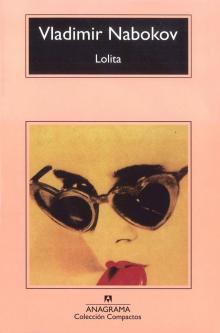 Lolita
Lolita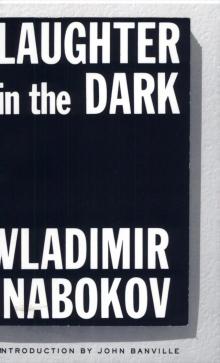 Laughter in the Dark
Laughter in the Dark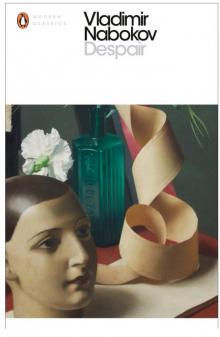 Despair
Despair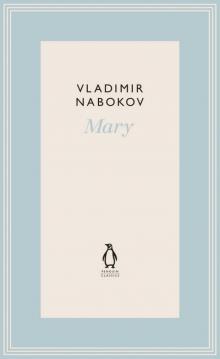 Mary
Mary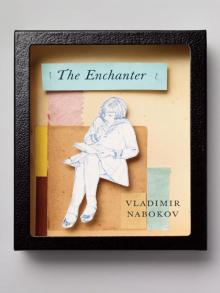 The Enchanter
The Enchanter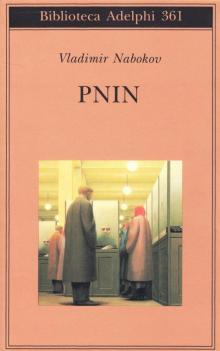 Pnin
Pnin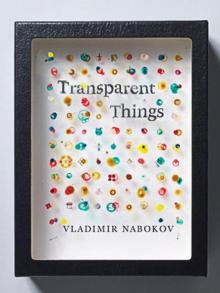 Transparent Things
Transparent Things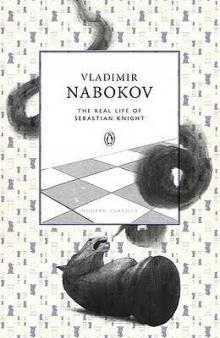 The Real Life of Sebastian Knight
The Real Life of Sebastian Knight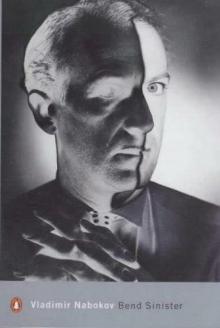 Bend Sinister
Bend Sinister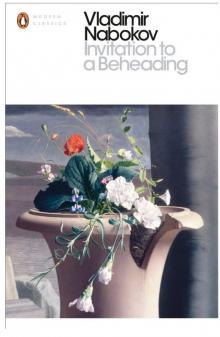 Invitation to a Beheading
Invitation to a Beheading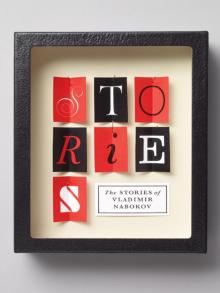 The Stories of Vladimir Nabokov
The Stories of Vladimir Nabokov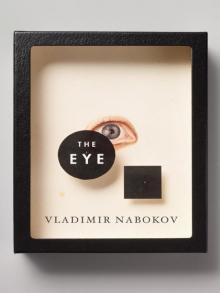 The Eye
The Eye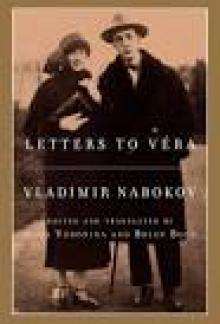 Letters to Véra
Letters to Véra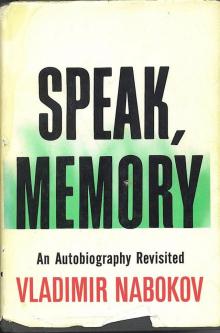 Speak, Memory
Speak, Memory The Gift
The Gift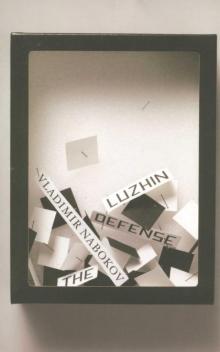 The Luzhin Defense
The Luzhin Defense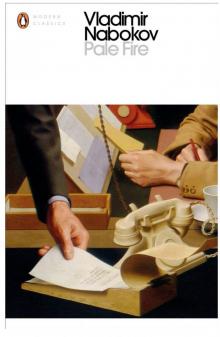 Pale Fire
Pale Fire Glory
Glory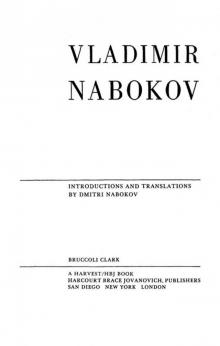 Man From the USSR & Other Plays
Man From the USSR & Other Plays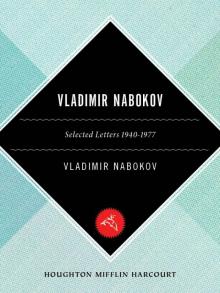 Vladimir Nabokov: Selected Letters 1940-1977
Vladimir Nabokov: Selected Letters 1940-1977 Strong opinions
Strong opinions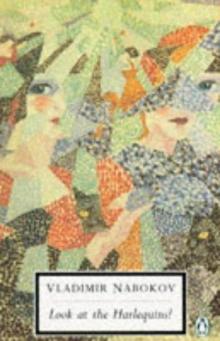 Look at the Harlequins!
Look at the Harlequins!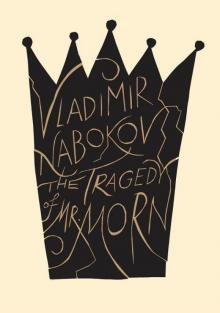 The Tragedy of Mister Morn
The Tragedy of Mister Morn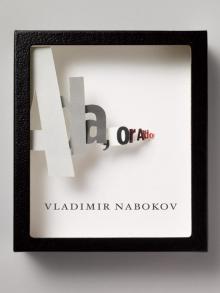 Ada, or Ardor
Ada, or Ardor Lectures on Russian literature
Lectures on Russian literature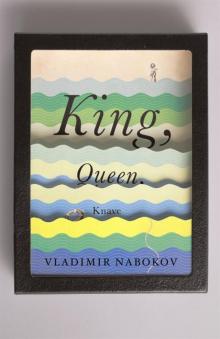 King, Queen, Knave
King, Queen, Knave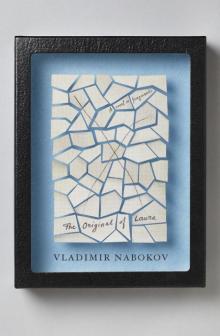 The Original of Laura
The Original of Laura